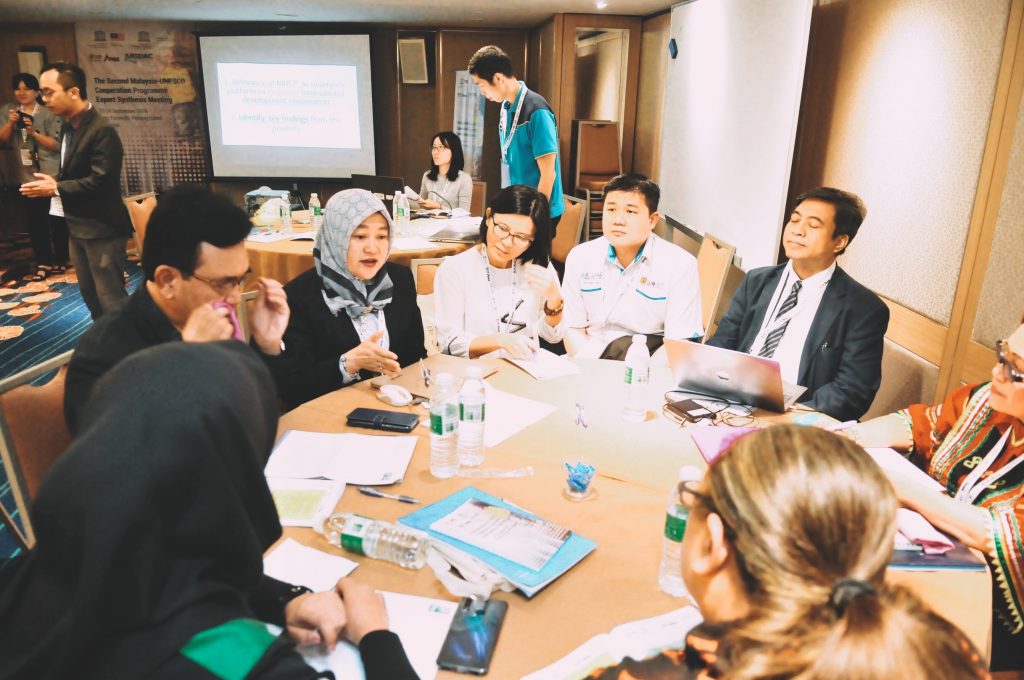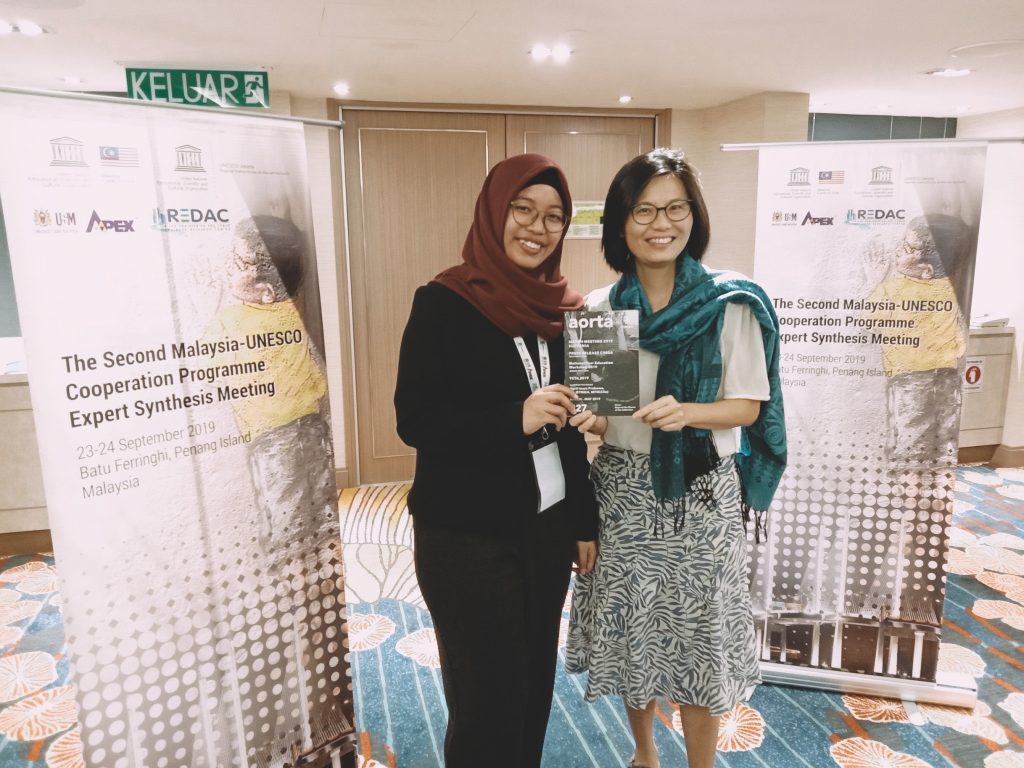
by Shabrina Adzania – CIMSA FK Unpad
On September 23rd-24th 2019, CIMSA had an opportunity to attend The 2nd Malaysia-UNESCO Cooperation Programme (MUCP) Expert Synthesis Meeting in Batu Ferringhi, Penang Island, Malaysia. The goal of the synthesis meeting was to facilitate ready implementation of results by the member states. Emphasis was given to establish joint-cooperation with countries from Asia and the Pacific region, Small Island Developing States (SIDS), Least Developed Countries (LDC), and Africa, with the commitment to support the UNESCO’s agenda global priorities: Africa and Gender Equality.
Prof. Dr. Shahbaz Khan, Director of UNESCO Regional Science Bureau for Asia and The Pacific attended the meeting and gave his opening remarks on the first day. The meeting was attended by participants from Australia, France, Malaysia, Myanmar, South Korea, Kingdom of Tonga, Fiji, Philippines, Indonesia, Nigeria, Tanzania, and Iran. There were 2 participants from Indonesia and both of us were the only youth representatives for the meeting.

The role of MUCP and how its relevancy contributes to SSC (South-South Cooperation) were intensely discussed. Group discussion was held to formulate key messages of every country’s expectations and contribution offers to this UNESCO cooperation programme. CIMSA had the opportunity to represent Indonesia alongside with Myanmar, Philippines, Tonga, and Malaysia in discussing the role of education and capacity building. At the end of the discussion, CIMSA had a strong point about youth empowerment in sharing human resources for the cooperation.
On the second day, I had a session in addressing environmental, social, and ethical challenges of the annual haze in Southeast Asia by presenting one of the collaboration projects between CIMSA and UNESCO. The name of the project was MASKER (Mari Bersama Perangi Udara Kotor). This project was held in Siak, Riau on August 2018 with the participation of Human Rights Trainer. The project’s objective was to improve the students’ knowledge regarding the dangers of haze pollution for health. I explained about CIMSA’s role in the project, key findings, and recommendations. Knowing the project was successfully held, many participants appreciated our works and showed their interest to know more about CIMSA.


In conclusion, sharing prosperity, sharing humanity, and applying SDGs were the key points that all of the participants talked about at the meeting. With the spirit of empowering member states and furthering the SSC (South-South Cooperation), the meeting was held successfully and hopefully the partnership between the member states will be sustainable in the future. As Engr. Cristeta from HELP Davao Network, Philippines said that “no country is too poor to share”, we also hope that CIMSA, representing Indonesia, will be able to contribute further in this collaboration with UNESCO.